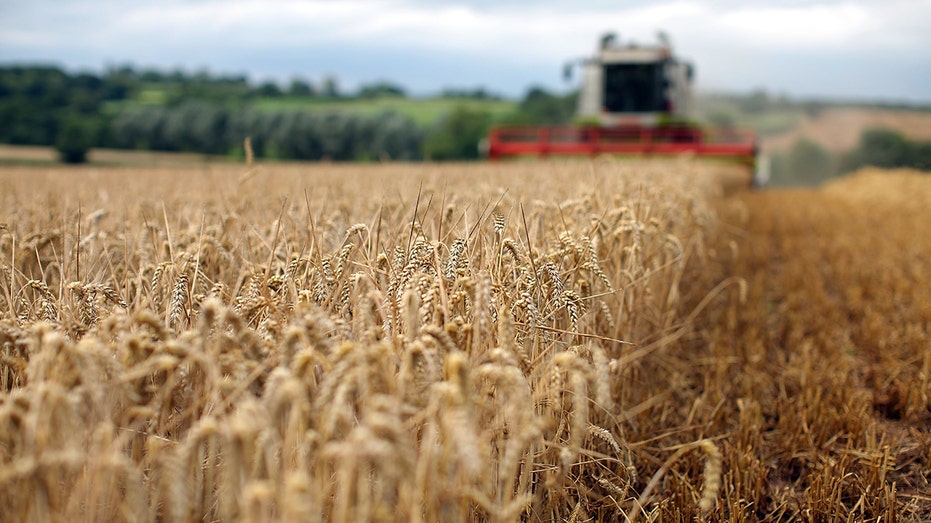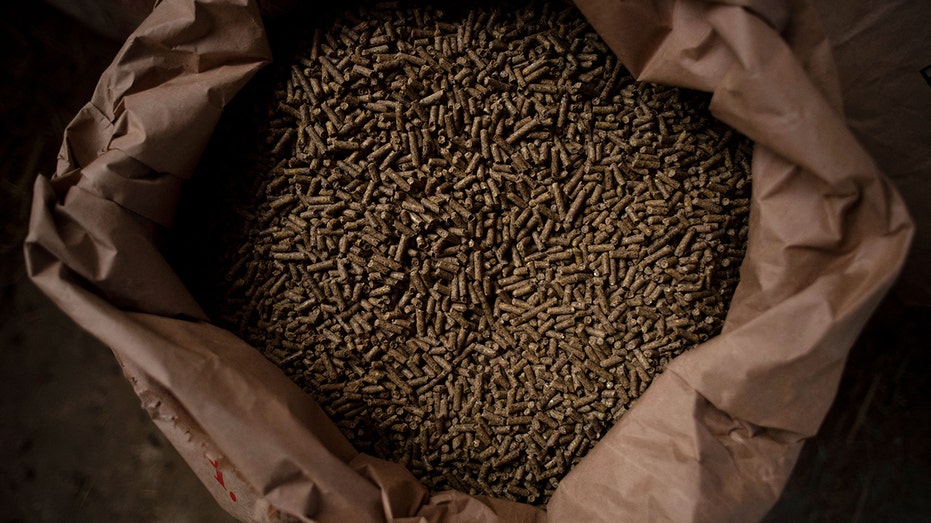Bunge, Viterra to merge to create global agribusiness giant
The $8.2 billion deal comes as agriculture traders have reaped larger profits during the past year
States looking to combat the China threat to US farmland
FOX Business’ Lydia Hu details efforts from various states to protect U.S. farmland with North Carolina being the latest to consider banning foreign investments.
U.S. grain trader and oilseed processor Bunge agreed to acquire Glencore-backed Viterra for $8.2 billion in a deal that would create one of the world’s largest agricultural companies.
Under the terms of the deal, Bunge will pay Viterra shareholders about 65.6 million shares valued at $6.2 billion and about $2 billion in cash. Bunge will also assume $9.8 billion of Viterra’s debt. The combined company will be led by Bunge Chief Executive Greg Heckman and Chief Financial Officer John Neppl.
"Our highly complementary asset footprints will create a network that connects the world’s largest production regions to areas of fastest-growing consumption," Heckman said Tuesday.

A combine harvester gathers wheat in fields at the start of harvesting on August 9, 2010. (Photo by Christopher Furlong/Getty Images) (Photo by Christopher Furlong/Getty Images / Getty Images)
The deal is expected to close in the middle of next year.
FLORIDA ORANGE PRODUCERS RECORD WORST YEAR SINCE 1930S
The planned combination of the two grain shippers comes as agriculture traders, including Bunge, have reaped larger profits during the past year following Russia’s invasion of Ukraine, which sent grain prices soaring.
For Bunge, which has a market value of about $14 billion, swallowing Viterra would put it on par with its biggest rivals, Archer Daniels Midland and Cargill, with more than $100 billion in annual revenue.
| Ticker | Security | Last | Change | Change % |
|---|---|---|---|---|
| ADM | ARCHER-DANIELS-MIDLAND CO. | 66.33 | +0.90 | +1.38% |
Bunge is one of the world’s largest grain traders, directing shipments of corn, soybeans, wheat and other food commodities around the globe. St. Louis-based Bunge, ADM, Cargill and Louis Dreyfus make up the so-called "ABCDs" of global commodity trading that dominate the sector.
Bunge reported $67 billion in annual sales in its 2022 fiscal year while Viterra had $54 billion in revenue. Bunge’s rival ADM reported $102 billion in revenue for its 2023 fiscal year, and privately held Cargill posted $165 billion.
DEVASTATING WHEAT HARVEST LOOMS AS KANSAS FARMERS DEAL WITH RELENTLESS DROUGHT
The companies said the merger is expected to generate about $250 million in annual operational pretax savings within the first three years of completing the deal. Bunge said that it also plans to repurchase about $2 billion of its own stock.
The Bunge board is expected to be made up of eight Bunge-nominated representatives and four nominated by Viterra shareholders. After the transaction closes, Viterra shareholders are expected to own about 30% of the newly combined entity.
Along with the war in Ukraine, grain trader’s bottom lines have benefited from years of bad weather in South America, a tight global supply of crops and a rising demand for biofuels. Traders tend to thrive off crop shortages and volatility in parts of the world that drive up prices.

The Eaubonne bulk carrier ship docks in the port of Mombasa, Kenya Saturday, Nov. 26, 2022. The vessel arrived with 53,300 tons of wheat for commercial use in Kenya and procured under the Black Sea Grain Initiative, a deal to ease the export of Ukrai (AP Newsroom)
Bunge, which traces its roots to a Dutch firm founded in 1818, is the world’s largest processor of oilseeds such as soybeans, rapeseed, canola and sunflower seeds. It processes the oilseeds into vegetable oils and protein meals, for food, animal feed and biofuel.
GOP REPS SHRED PRESIDENT BIDEN FOR 'ABSOLUTELY' TURNING HIS BACK AGAINST US FARMERS
Adding Viterra would expand Bunge’s trading business in the U.S., Canada and Australia to go along with its larger South America presence, analysts have said. Viterra’s operations would complement Bunge’s oilseed processing footprint. Bunge said Tuesday the addition of Viterra gives it trading capabilities in regions and crops where it is underrepresented.
Analysts said the proposed deal is likely to draw scrutiny from antitrust regulators in the Biden administration, which has challenged deals that the administration has said would suppress competition. The Federal Trade Commission this week sued Microsoft to stop it from closing its purchase of Activision Blizzard, and the Justice Department has sued to block deals in industries such as book publishing, sugar production and health technology.
Glencore previously approached Bunge about combining in 2017 after several years of bumper crops in the 2010s sent grain prices plunging, pressuring agriculture companies and setting off a wave of consolidation talks in the sector.
Illinois-based ADM also discussed a combination with Bunge in 2018, though neither set of discussions led to a deal. That same year, two activist investors, hedge fund D.E. Shaw and Continental Grain, pushed Bunge to improve operations and look at ways to boost its stock price, which had lagged behind its peers.
CHINA CAN 'BLIGHT' US FOOD PRODUCTION, EXPERT WARNS
The company in 2019 hired Heckman, a veteran of the grain business, to replace former CEO Soren Schroder. Heckman sold off some of Bunge’s smaller assets, including its ownership interest in an Iowa ethanol plant, its Brazilian margarine business and some of its grain elevators.

Sacks of wheat grain are seen in a sheep farm in Montejaque on March 11, 2022. (Photo by JORGE GUERRERO / AFP) (Photo by JORGE GUERRERO/AFP via Getty Images) (Photo by JORGE GUERRERO/AFP via Getty Images / Getty Images)
"We have the ability to pull every lever around M&A," Heckman said at a May investor event. "On the M&A front, we’ve probably got the biggest pipeline of opportunities that we’ve seen."
Commodities giant Glencore, which owns Viterra along with two Canadian pension funds, said in April it would conduct a strategic review of the business and consider divesting it. Analysts and bankers had speculated for months what such a move might look like, including the possibility of an initial public offering.
Glencore will receive about $3 billion in Bunge stock and $1 billion in cash for its stake in Viterra, giving it 15% in the combined company. One of Viterra’s largest shareholders, the Canadian Pension Plan Investment Board, said it would receive a roughly 12% stake in the newly combined business and about $800 million in cash.
CLICK HERE TO GET THE FOX BUSINESS APP
Viterra expanded its grain business last year when it bought Omaha, Neb., trader Gavilon for about $1 billion from Japanese trading house Marubeni.
Bunge employs roughly 23,000 people in more than 40 countries. Viterra has 17,500 employees in 27 countries, and both companies have more than 300 facilities.
Julie Steinberg contributed to this article.




















